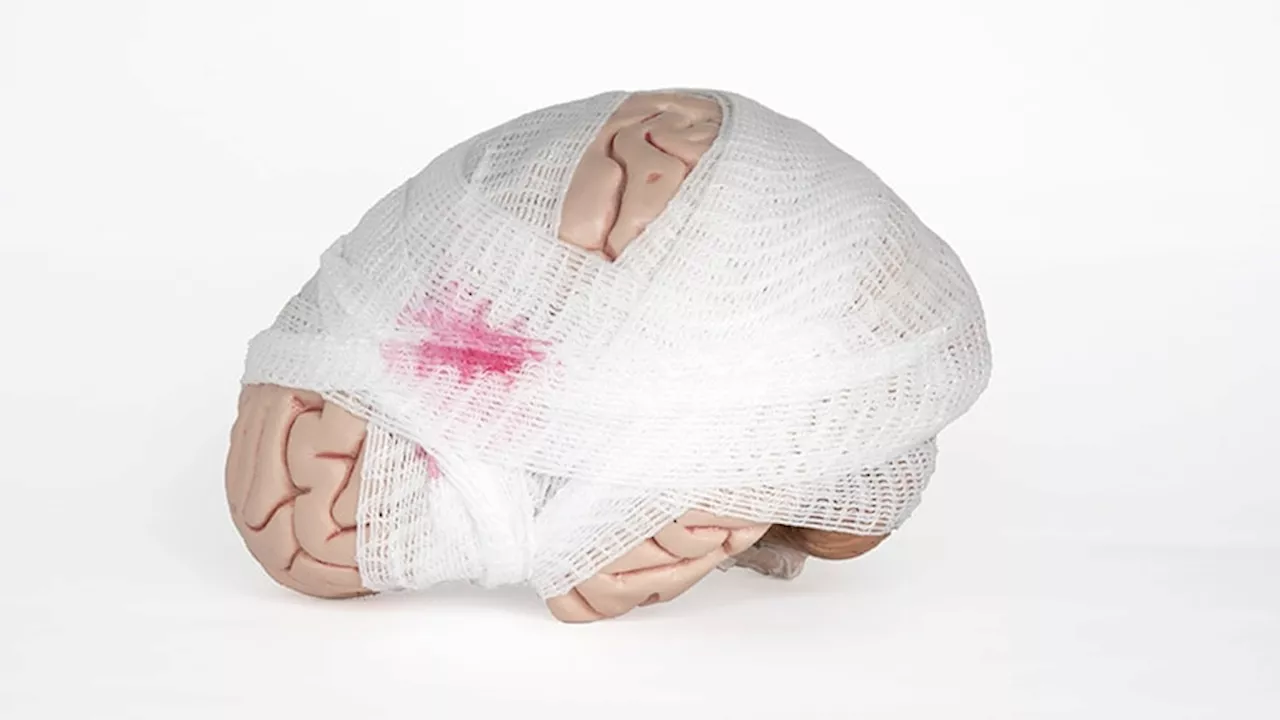A new study published in Neurology finds that COVID-19 infection may be linked to an increased risk of Alzheimer's disease. Researchers discovered that the virus's impact on beta amyloid proteins is comparable to the effects of four years of aging, and individuals with a history of COVID-19 showed changes in blood proteins associated with Alzheimer's pathology.
Researchers have discovered a potential link between COVID-19 infection and an increased risk of Alzheimer's disease. A study, published in the journal Neurology, revealed that the average estimated effect of the virus on beta amyloid proteins was comparable to the effect from four years of aging. Beta amyloid proteins are linked to the development of Alzheimer's, and their accumulation in the brain is a hallmark of the disease.
The study also found that individuals with a history of COVID-19 were more likely to have specific changes in blood proteins that have been previously associated with beta-amyloid pathology in the brain. These changes were particularly pronounced among people who had been hospitalized for COVID-19 and those with known risk factors for Alzheimer's, such as high blood pressure.While this study establishes a correlation between COVID-19 and changes in beta amyloid proteins, it is important to note that it does not prove causation. Further research is needed to determine if COVID-19 directly causes these changes or if other factors are involved. Additionally, the blood biomarkers used in this study are relatively new and their reliability as clinical tools is still under debate. Nonetheless, the findings provide valuable clues about the potential role of infectious diseases in the development of neurodegenerative diseases like Alzheimer's. Past research has suggested that some types of infections may increase the risk of Alzheimer's for certain individuals. This new study adds to the growing body of evidence supporting this hypothesis. The researchers believe that the inflammation triggered by COVID-19 may be responsible for these changes in the brain. Although the exact mechanism is not yet fully understood, it is possible that this inflammation disrupts normal brain function and contributes to the accumulation of beta amyloid proteins. The implications of this research are significant. If COVID-19 does indeed increase the risk of Alzheimer's, it could have major public health consequences. This could lead to a surge in Alzheimer's cases in the coming years as more people recover from COVID-19. This highlights the importance of continued research into the long-term effects of COVID-19 and the development of interventions to mitigate its potential impact on brain health
ALZHEIMER's DISEASE COVID-19 BETA AMYLOID NEURODEGENERATIVE DISEASES PUBLIC HEALTH
United States Latest News, United States Headlines
Similar News:You can also read news stories similar to this one that we have collected from other news sources.
 CMV Infection and Alzheimer's Disease: What's the Link?A new study suggests a possible connection between cytomegalovirus (CMV) infection and Alzheimer's disease. Researchers found CMV antibodies in various tissues of Alzheimer's patients, raising questions about the role of CMV in the development of the disease. However, experts emphasize that the study doesn't definitively prove causation and more research is needed. The article discusses the study's findings, potential links between CMV and Alzheimer's, ways to protect yourself from CMV, and general tips for reducing your risk of Alzheimer's.
CMV Infection and Alzheimer's Disease: What's the Link?A new study suggests a possible connection between cytomegalovirus (CMV) infection and Alzheimer's disease. Researchers found CMV antibodies in various tissues of Alzheimer's patients, raising questions about the role of CMV in the development of the disease. However, experts emphasize that the study doesn't definitively prove causation and more research is needed. The article discusses the study's findings, potential links between CMV and Alzheimer's, ways to protect yourself from CMV, and general tips for reducing your risk of Alzheimer's.
Read more »
 Updated Alzheimer's Disease Evaluation Guidelines Released by the Alzheimer's AssociationThe Alzheimer's Association has issued new clinical practice guidelines for evaluating individuals suspected of having Alzheimer's disease (AD) or AD-related neurodegenerative disorders. These guidelines provide updated recommendations for both primary and specialty care settings, marking the first update for specialists since 2001 and the introduction of guidelines for primary care physicians.
Updated Alzheimer's Disease Evaluation Guidelines Released by the Alzheimer's AssociationThe Alzheimer's Association has issued new clinical practice guidelines for evaluating individuals suspected of having Alzheimer's disease (AD) or AD-related neurodegenerative disorders. These guidelines provide updated recommendations for both primary and specialty care settings, marking the first update for specialists since 2001 and the introduction of guidelines for primary care physicians.
Read more »
 Alzheimer’s Caregivers Share How to Care for Someone With Alzheimer’sLearn tips on how to care for a loved one with Alzheimer’s from people who have been there themselves.
Alzheimer’s Caregivers Share How to Care for Someone With Alzheimer’sLearn tips on how to care for a loved one with Alzheimer’s from people who have been there themselves.
Read more »
 Head Injuries May Trigger Alzheimer's and Dementia by Re-Awakening Dormant VirusScientists have discovered a potential link between repeated head injuries and the development of Alzheimer's disease and dementia. A study using 3D human brain tissue models found that mild blows to the brain could reactivate a dormant herpes simplex virus (HSV-1), leading to the formation of harmful proteins and triggering the hallmarks of Alzheimer's.
Head Injuries May Trigger Alzheimer's and Dementia by Re-Awakening Dormant VirusScientists have discovered a potential link between repeated head injuries and the development of Alzheimer's disease and dementia. A study using 3D human brain tissue models found that mild blows to the brain could reactivate a dormant herpes simplex virus (HSV-1), leading to the formation of harmful proteins and triggering the hallmarks of Alzheimer's.
Read more »
 TBI May Reactivate Latent Virus, Increasing Alzheimer's RiskA new study suggests that mild traumatic brain injury (TBI) can reactivate dormant herpes simplex virus type 1 (HSV-1) in the brain, potentially contributing to Alzheimer's disease (AD) pathology. Researchers used a 3D human brain tissue model to demonstrate that a mechanical jolt simulating concussion reactivated HSV-1, leading to AD-related markers like neuroinflammation and amyloid beta production.
TBI May Reactivate Latent Virus, Increasing Alzheimer's RiskA new study suggests that mild traumatic brain injury (TBI) can reactivate dormant herpes simplex virus type 1 (HSV-1) in the brain, potentially contributing to Alzheimer's disease (AD) pathology. Researchers used a 3D human brain tissue model to demonstrate that a mechanical jolt simulating concussion reactivated HSV-1, leading to AD-related markers like neuroinflammation and amyloid beta production.
Read more »
 How Insulin Affects Alzheimer's + 2 Diets That May Lower The RiskThis article investigates the link between insulin resistance and Alzheimer's disease. It explains how insulin resistance can impact brain health and memory function, and highlights two dietary approaches – intermittent fasting and the ketogenic diet – that may help lower insulin levels and reduce the risk of developing Alzheimer's.
How Insulin Affects Alzheimer's + 2 Diets That May Lower The RiskThis article investigates the link between insulin resistance and Alzheimer's disease. It explains how insulin resistance can impact brain health and memory function, and highlights two dietary approaches – intermittent fasting and the ketogenic diet – that may help lower insulin levels and reduce the risk of developing Alzheimer's.
Read more »
